Is the Supreme Court's legitimacy at stake in its new term?
The sharpest opinions on the debate from around the web
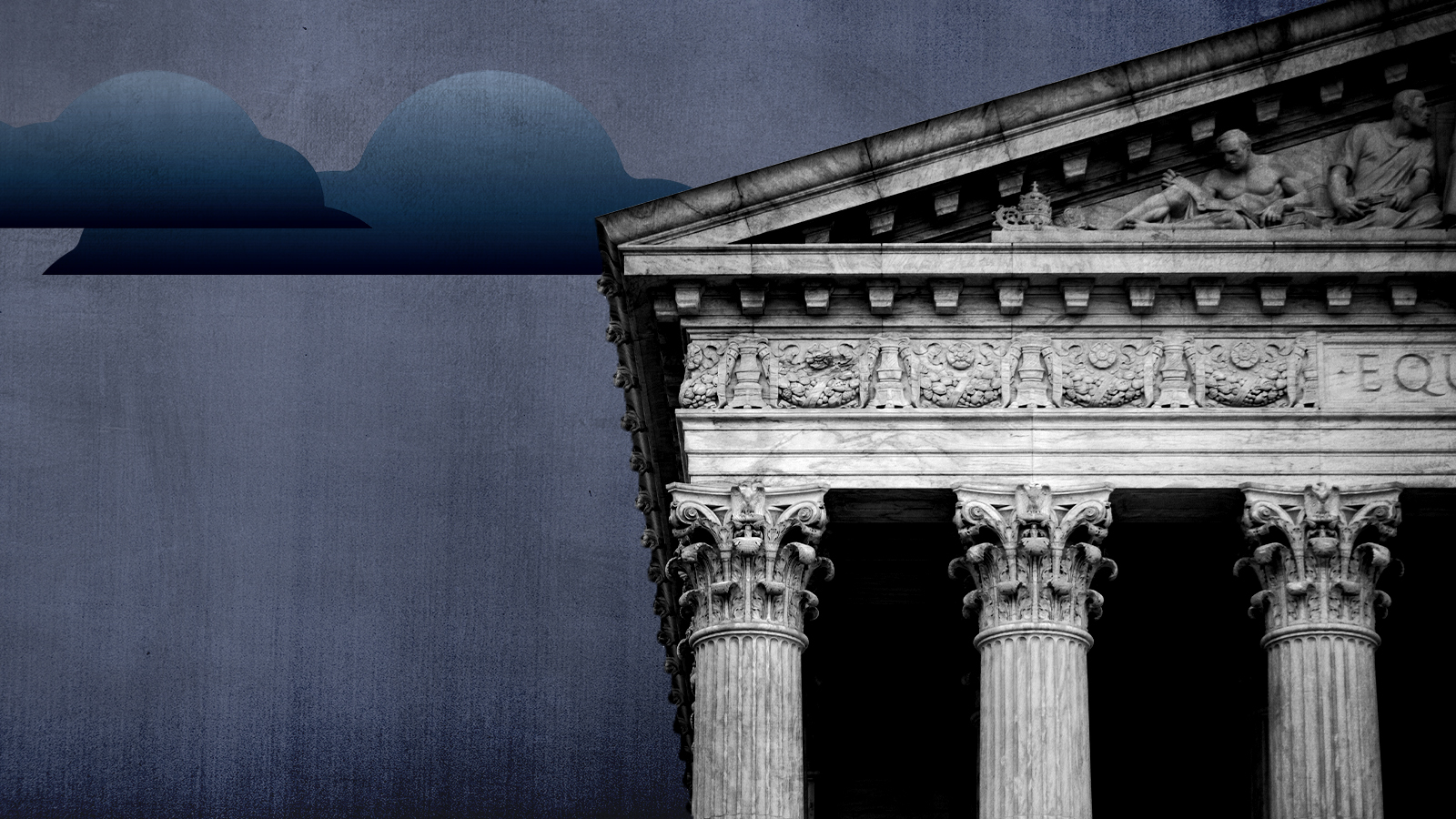

The Supreme Court on Monday started a new term that will give the 6-3 conservative supermajority opportunities to leave its mark on more hot-button issues after its landmark decision to overturn Roe v. Wade, which protected abortion rights for a half-century. This term, the court will consider cases involving affirmative action, gay rights, voting, and religion. Polls show that public approval of the court has fallen to historic lows, with a record number of Americans complaining the court is too conservative following former President Donald Trump's appointment of justices Neil Gorsuch, Brett Kavanaugh, and Amy Coney Barrett, who replaced the late liberal icon Ruth Bader Ginsburg. Those critiques could intensify if, as expected, the high court continues its lurch to the right this term by permitting more restrictions on abortion and fewer on guns, and relaxing the line separating church and state.
In a rare display of discord, the justices themselves this summer plunged into the debate about the court's credibility after a term in which it overturned longstanding precedents. "It just doesn't look like law when, you know, the new judges appointed by a new President come in and just start tossing out the old stuff," liberal Justice Elena Kagan said in a public appearance in Rhode Island. Chief Justice John Roberts defended the high court in a separate appearance in Colorado. "Simply because people disagree with an opinion is not a basis for questioning the legitimacy of the court," he said. His fellow conservative Justice Samuel Alito went a step further, saying that implying "the court is becoming an illegitimate institution or questioning our integrity crosses an important line." Is the Supreme Court's legitimacy in danger of crumbling in its new term?
The high court's credibility is on the line
The Supreme Court's legitimacy is in peril, says Fareed Zakaria at CNN, and the justices have only themselves to blame. Time after time, the majority has taken "actions that make the Court seem more partisan, more radical, more out of tune with the country." And this has been going on for decades. The high court's approval rating took a dive just over two decades ago after Bush v. Gore. "That was a nakedly partisan ruling in which conservatives, who had long championed states' rights, suddenly discovered that the federal government had a crucial role in the 2000 election."
Subscribe to The Week
Escape your echo chamber. Get the facts behind the news, plus analysis from multiple perspectives.

Sign up for The Week's Free Newsletters
From our morning news briefing to a weekly Good News Newsletter, get the best of The Week delivered directly to your inbox.
From our morning news briefing to a weekly Good News Newsletter, get the best of The Week delivered directly to your inbox.
The court has only grown "more ideologically predictable — that is, politically partisan — in recent years," with justices "appointed by Republicans now almost always rule in ways that Republicans want them to. Ditto for judges appointed by Democrats. It is all part of the hyper-polarization of American life."
Liberals are just trying to intimidate the majority
"The barrage of liberal attacks nefariously questioning the institutional legitimacy of the court" is part of a careful campaign to "advance a court-packing pipe dream," says Carrie Severino at Fox News. If the left can convince people the court is too conservative, the logic goes, maybe they can get people to support their call to expand the court and fill it with more liberal justices while Democrats are in power. The left also has tried to turn up the heat on the majority with "streams of left-wing protestors who continue to harass the justices at their homes, showing no signs of relenting" while Attorney General Merrick Garland looks the other way.
The protests and the insults have gone on non-stop since "the unprecedented leak of Justice Samuel Alito's opinion in Dobbs v. Jackson Women's Health Organization," telegraphing the majority's intention to overturn Roe and correct "one of the greatest acts of judicial arrogance in history." But it won't work. In the new term, expect the justices to preserve the court's dignity and legitimacy by keeping "their heads down" and respecting "the original meaning of the Constitution," following "the law where it leads."
The partisan court is protecting minority rule
The "zealous band of Republican partisans" that make up the high court's conservative wing isn't defending the Constitution, says Katrina vanden Heuvel in The Washington Post. It is "using a self-selected docket of cases to advance minority rule." A smaller conservative majority gutted the core enforcement mechanism of the Voting Rights Act in 2013, opening "the floodgates of voter-suppression laws across the South" and other red states. Now the right's supermajority is taking up two redistricting cases — Merrill v. Milligan in Alabama, and Moore v. Harper in North Carolina — that could result in rulings protecting "blatant" racial and partisan gerrymandering, weakening what remains of the Voting Rights Act.
"Forget the years of Republican railing about activist judges legislating from the bench," says Ruth Marcus, also in the Post. "This majority is perfectly willing to rewrite laws it doesn't like." Race will be a focus this term with cases on voting rights and affirmative action in college admissions. But the conservative supermajority will take up a host of politically charged issues, including clashes where religious liberty is likely to prevail over gay rights. As the court's new term gets going, the majority appears "heedless" of the "constraints on its power" and the consequences of its actions "on women, on minorities, on public safety, and, most worrisome, on democracy itself." That makes me worried "for the court and for the country whose future it will shape."
Everyone should be against ideology undermining the court
If Hillary Clinton had won the 2016 presidential election, instead of Donald Trump, it's easy to imagine the roles being reversed in the debate about the court's legitimacy, says Richard Wolf in USA Today. Clinton might have renominated former President Barack Obama's pick to replace the late conservative Justice Antonin Scalia, and Merrick Garland would have joined the court. Clinton then could have picked the successors of justices Ginsburg, Stephen Breyer and, "yes, even Republican nominee Anthony Kennedy," possibly. Then there would be a 6-3 liberal majority, and Republicans would be screaming about the elimination of state abortion restrictions, the upholding of strict gun control laws, and the death penalty and political gerrymandering would be on the way out. "If it would be wrong for a court built by Hillary Clinton to go so far left, it's wrong for the one built by Donald Trump to go too far right."
A free daily email with the biggest news stories of the day – and the best features from TheWeek.com
Harold Maass is a contributing editor at The Week. He has been writing for The Week since the 2001 debut of the U.S. print edition and served as editor of TheWeek.com when it launched in 2008. Harold started his career as a newspaper reporter in South Florida and Haiti. He has previously worked for a variety of news outlets, including The Miami Herald, ABC News and Fox News, and for several years wrote a daily roundup of financial news for The Week and Yahoo Finance.
-
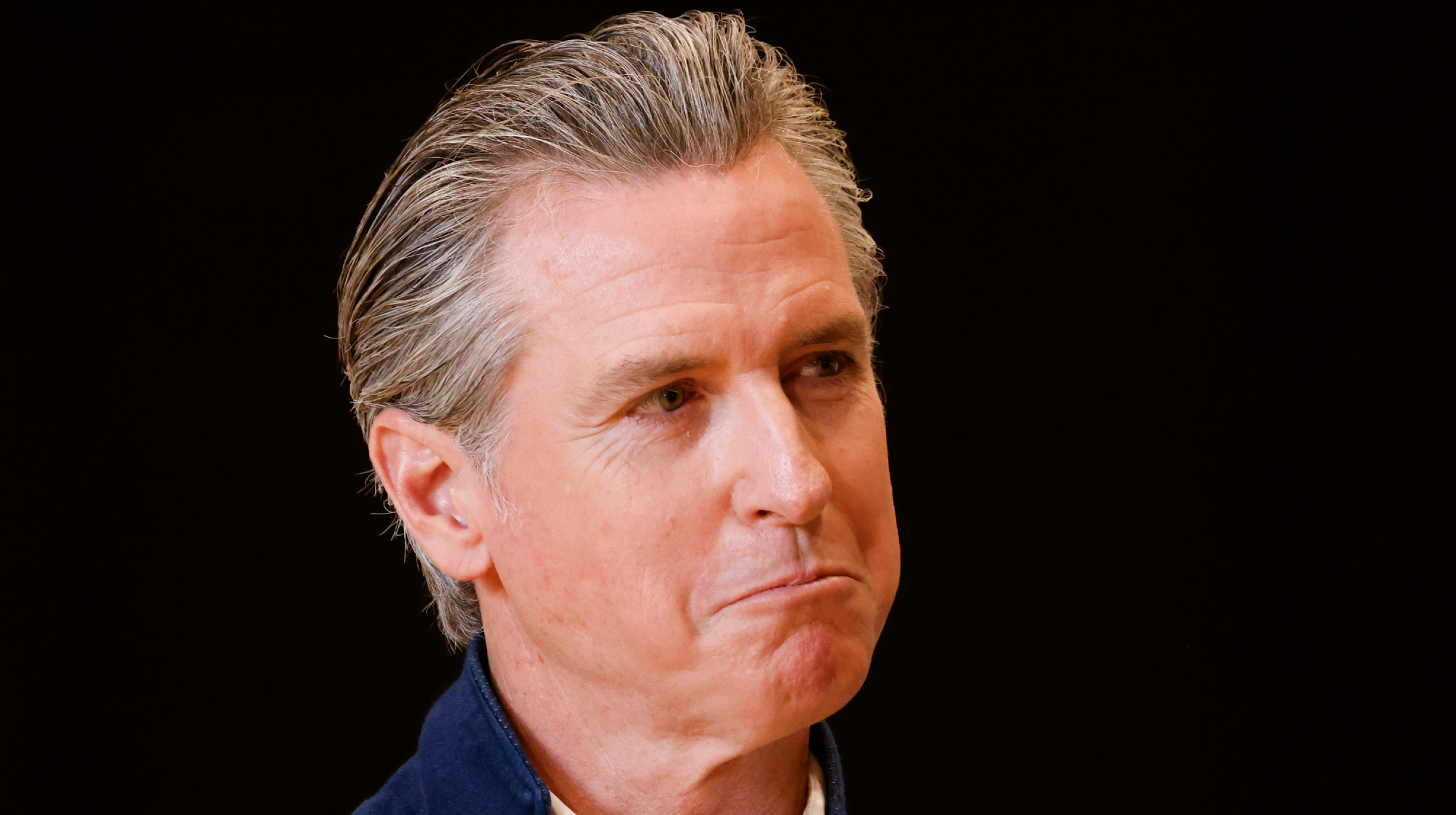 Gavin Newsom mulls California redistricting to counter Texas gerrymandering
Gavin Newsom mulls California redistricting to counter Texas gerrymanderingTALKING POINTS A controversial plan has become a major flashpoint among Democrats struggling for traction in the Trump era
-
 6 perfect gifts for travel lovers
6 perfect gifts for travel loversThe Week Recommends The best trip is the one that lives on and on
-
 How can you get the maximum Social Security retirement benefit?
How can you get the maximum Social Security retirement benefit?the explainer These steps can help boost the Social Security amount you receive
-
 'Singling out crypto for special scrutiny would be misguided'
'Singling out crypto for special scrutiny would be misguided'Instant Opinion Opinion, comment and editorials of the day
-
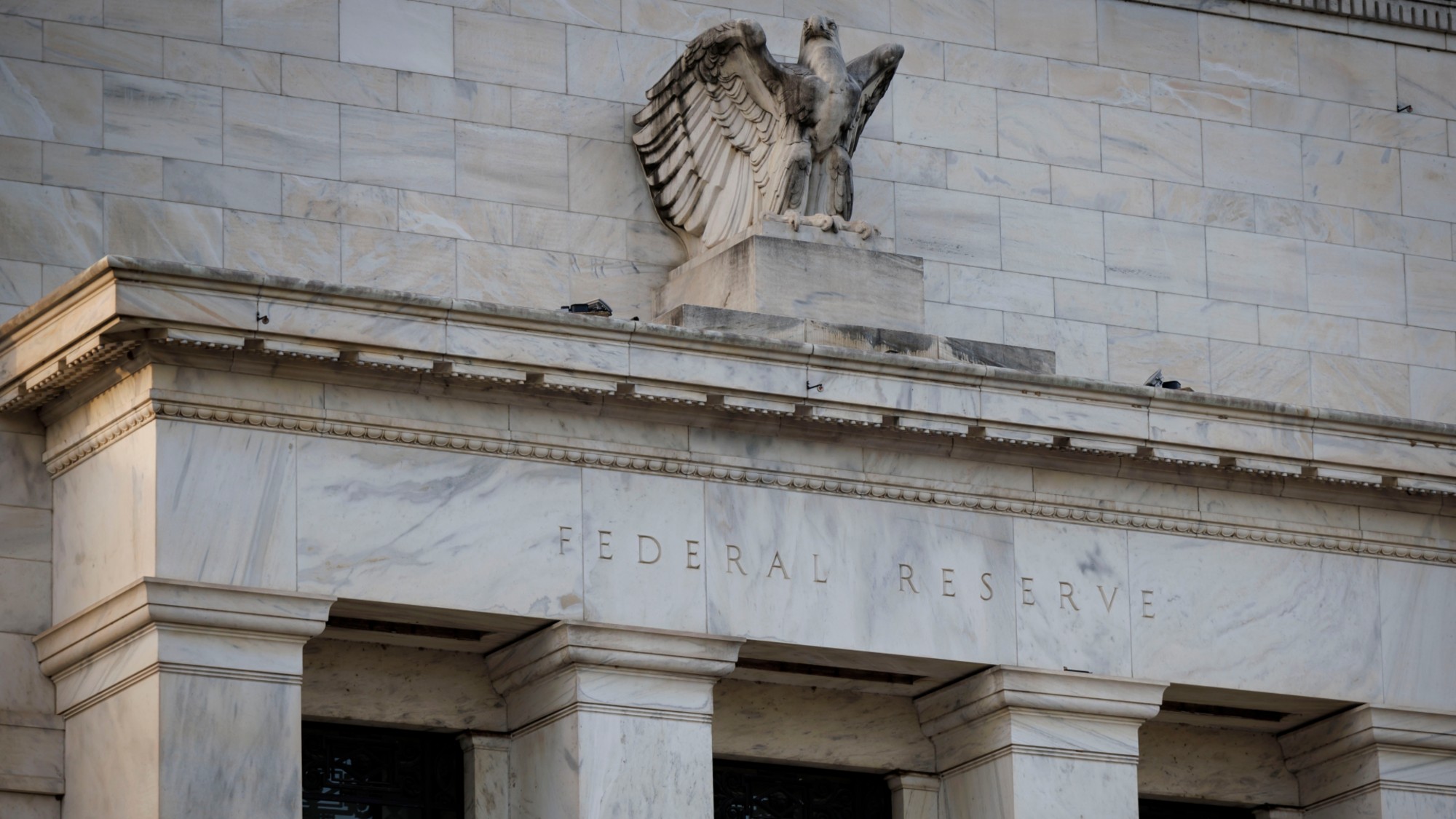 'A recipe for higher costs and lower living standards'
'A recipe for higher costs and lower living standards'Instant Opinion Opinion, comment and editorials of the day
-
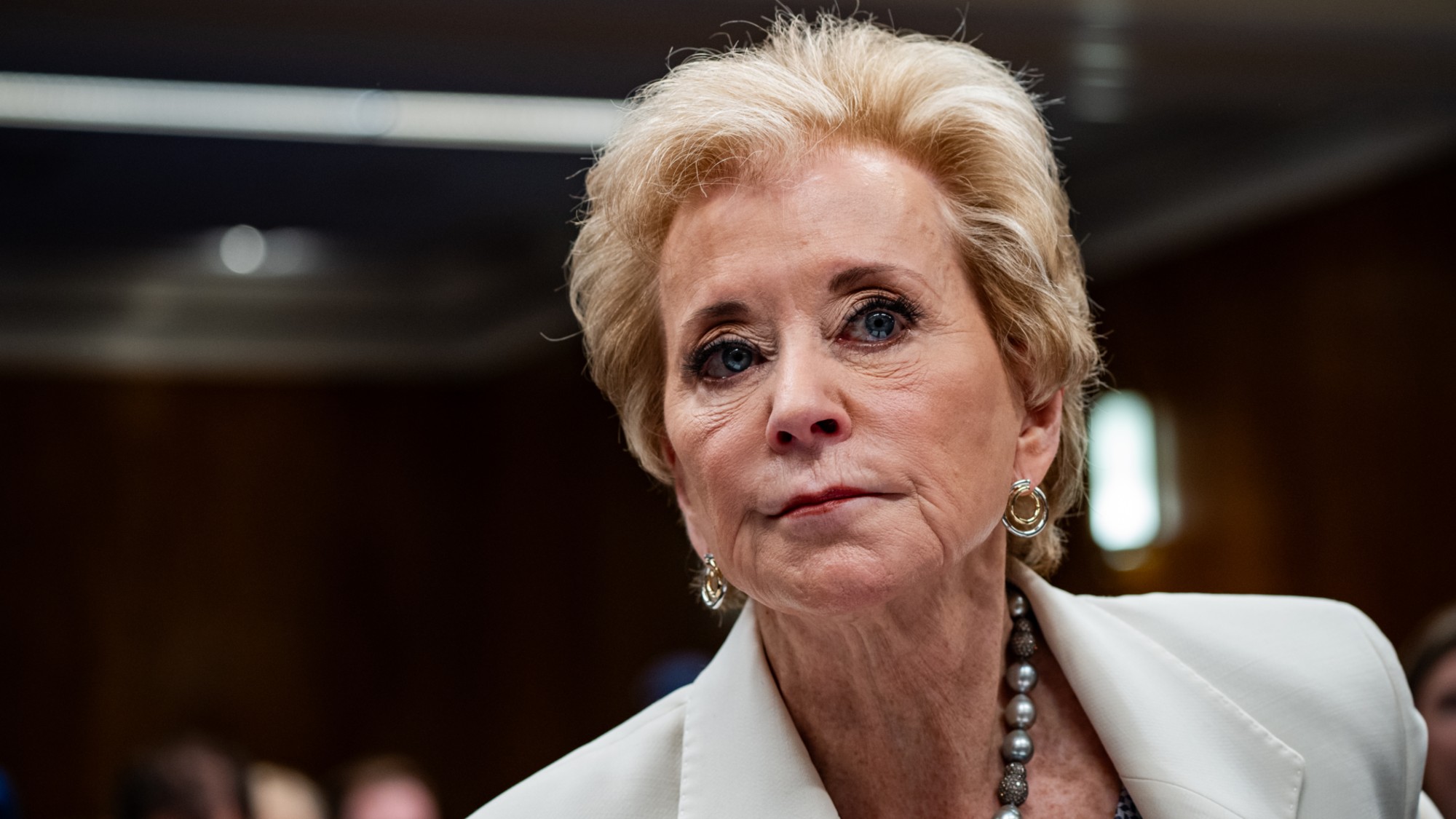 SCOTUS greenlights mass DOE firings
SCOTUS greenlights mass DOE firingsSpeed Read The Supreme Court will allow the Trump administration to further shrink the Education Department
-
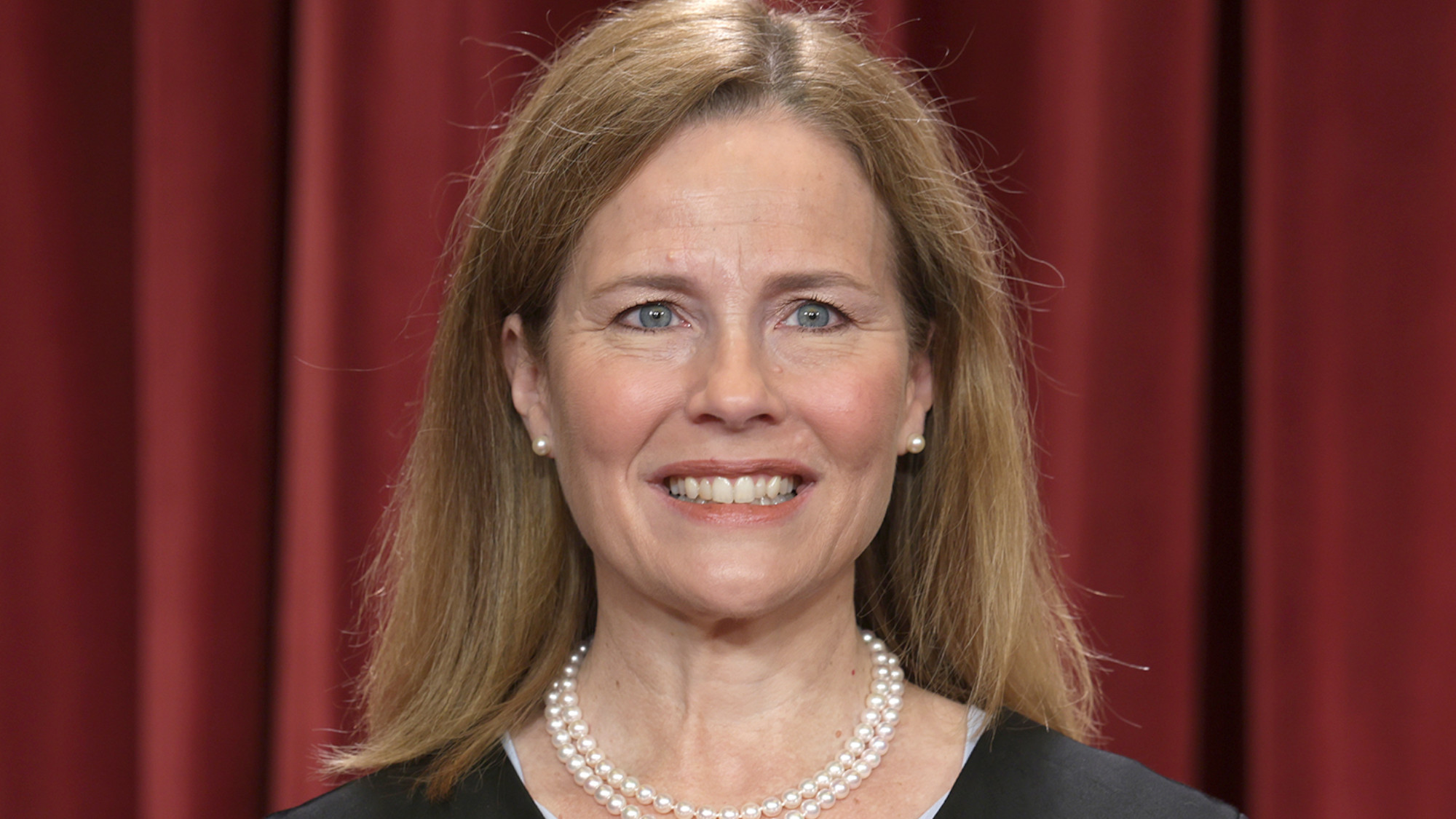 Supreme Court: Ceding more power to Trump?
Supreme Court: Ceding more power to Trump?Feature SCOTUS has given Trump a victory by ending nationwide injunctions, limiting judges' power to block presidential orders
-
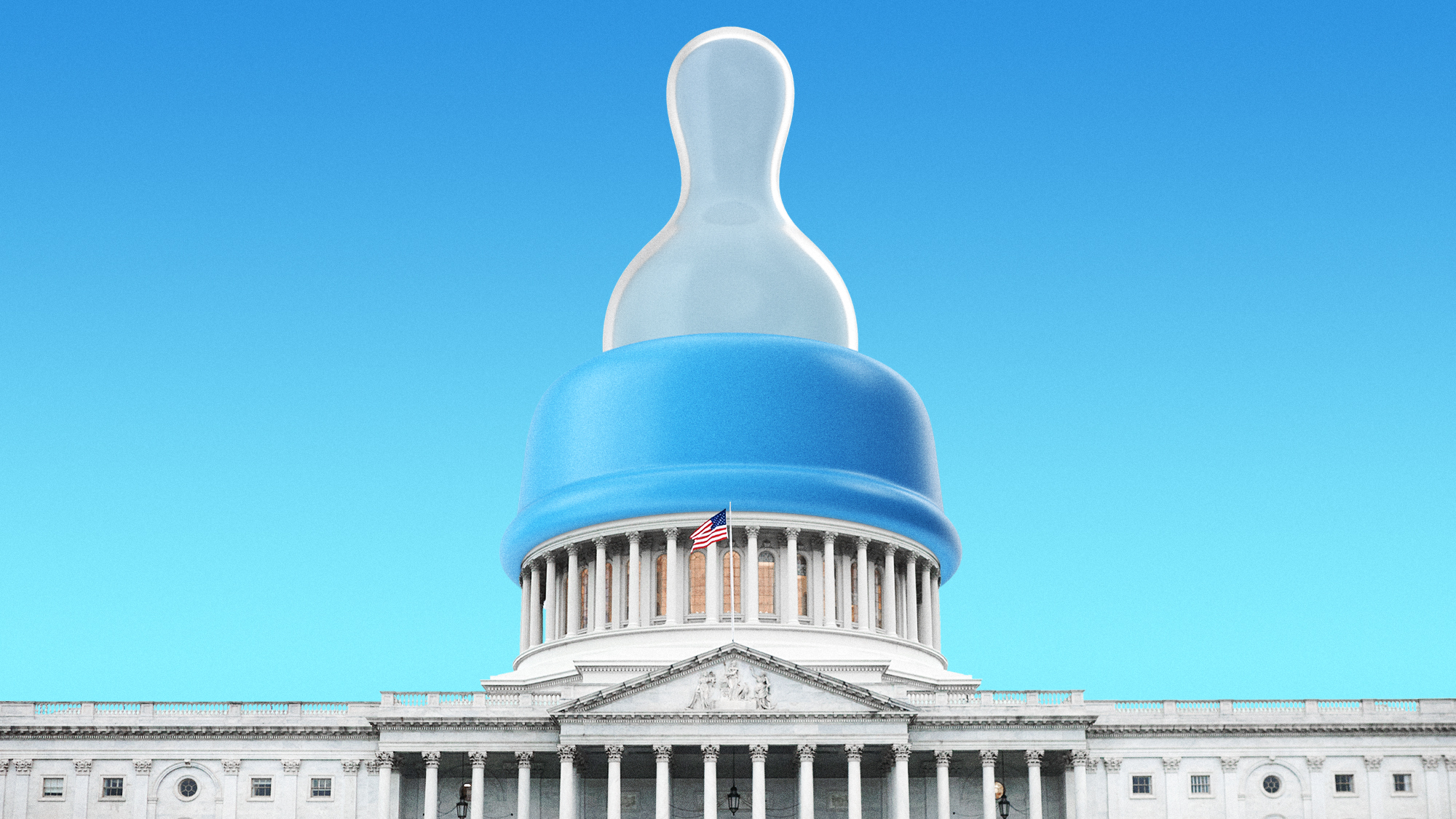 The Supreme Court and Congress have Planned Parenthood in their crosshairs
The Supreme Court and Congress have Planned Parenthood in their crosshairsTalking Points Trump's budget bill and the court's ruling threaten abortion access
-
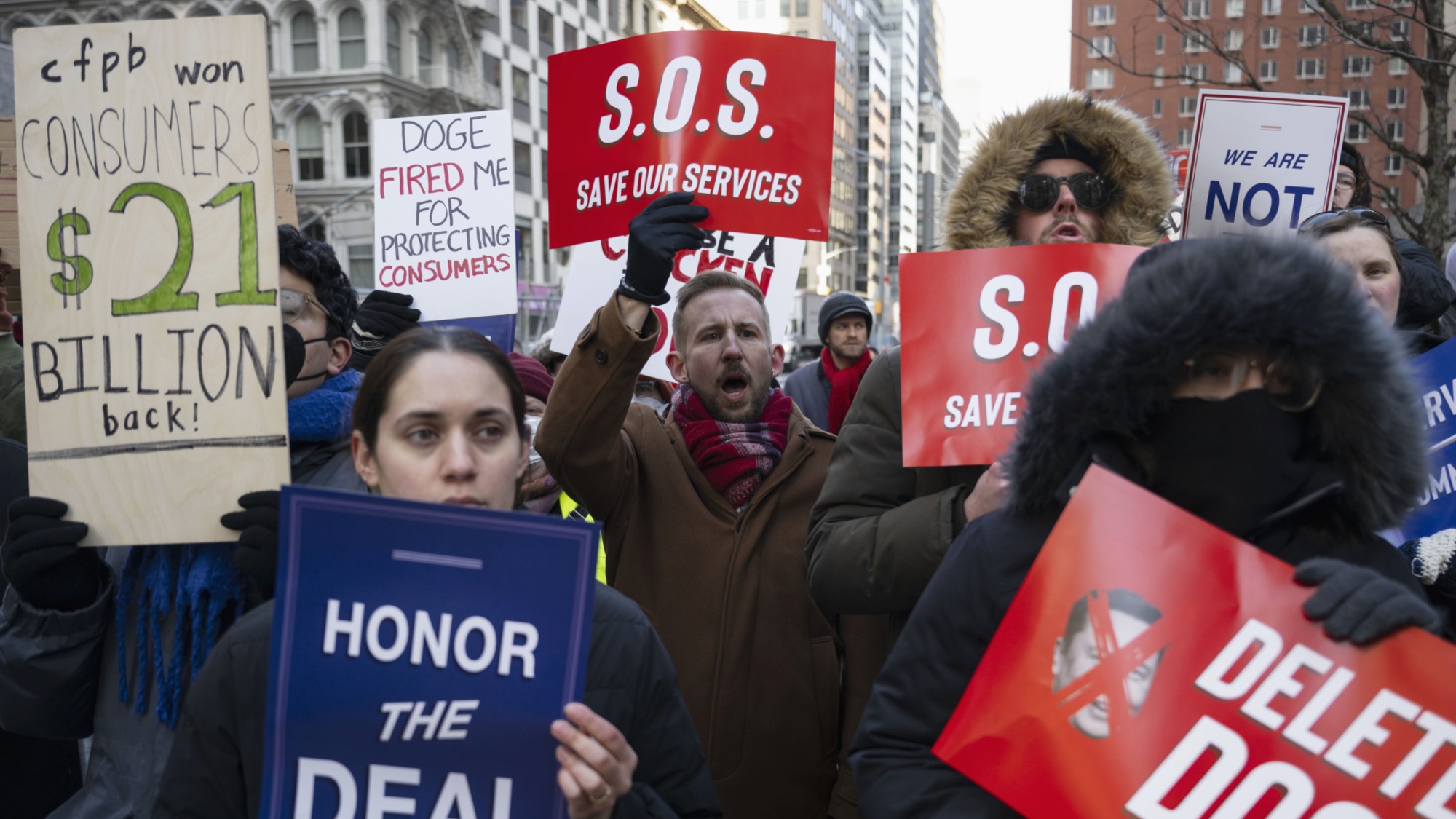 SCOTUS greenlights Trump's federal firings
SCOTUS greenlights Trump's federal firingsspeed read The Trump administration can conduct mass federal firings without Congress' permission, the Supreme Court ruled
-
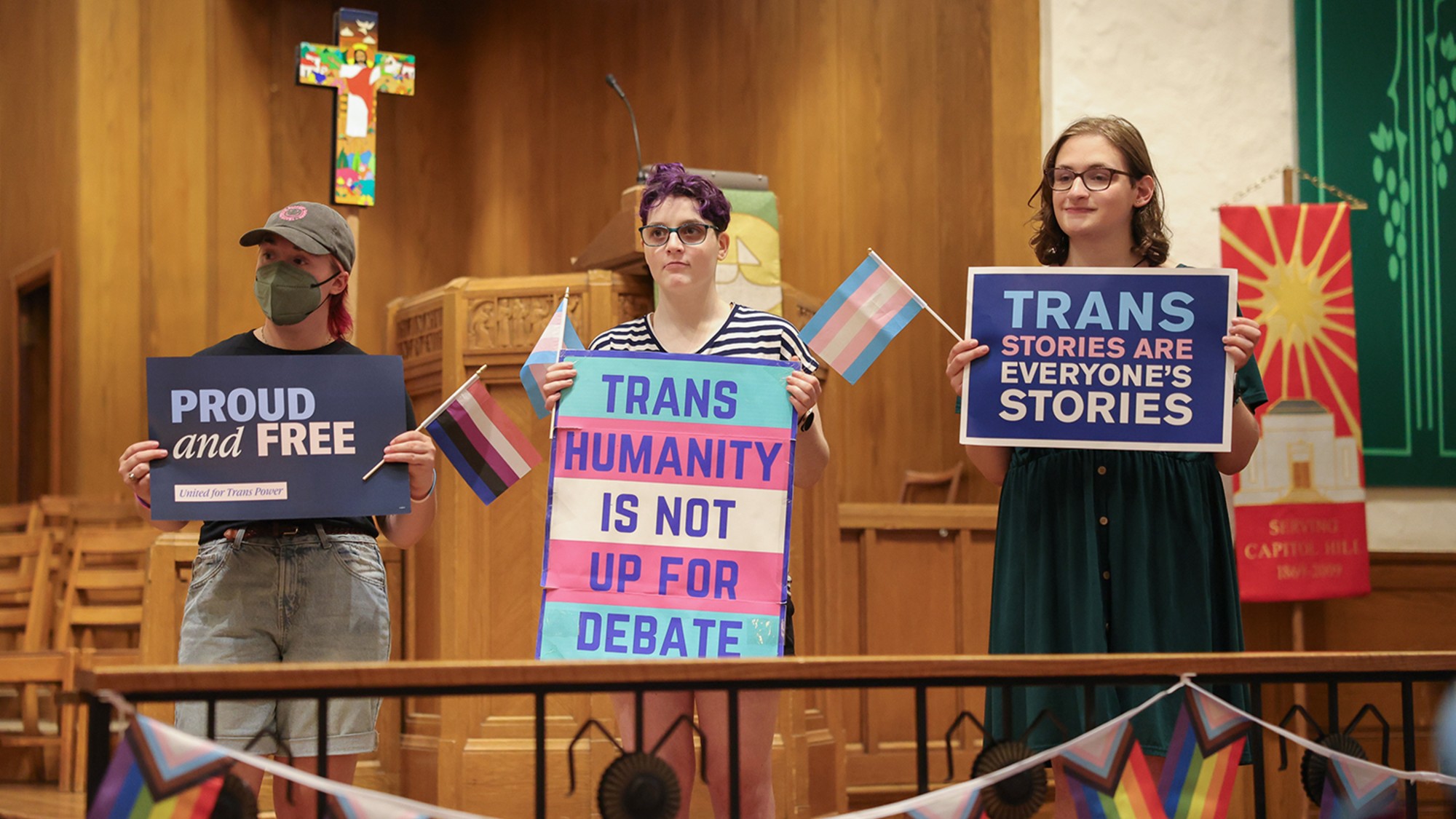 U.S. v. Skrmetti: Did the trans rights movement overreach?
U.S. v. Skrmetti: Did the trans rights movement overreach?Feature The Supreme Court upholds a Tennessee law that bans transgender care for minors, dealing a blow to trans rights
-
 The last words and final moments of 40 presidents
The last words and final moments of 40 presidentsThe Explainer Some are eloquent quotes worthy of the holders of the highest office in the nation, and others... aren't
